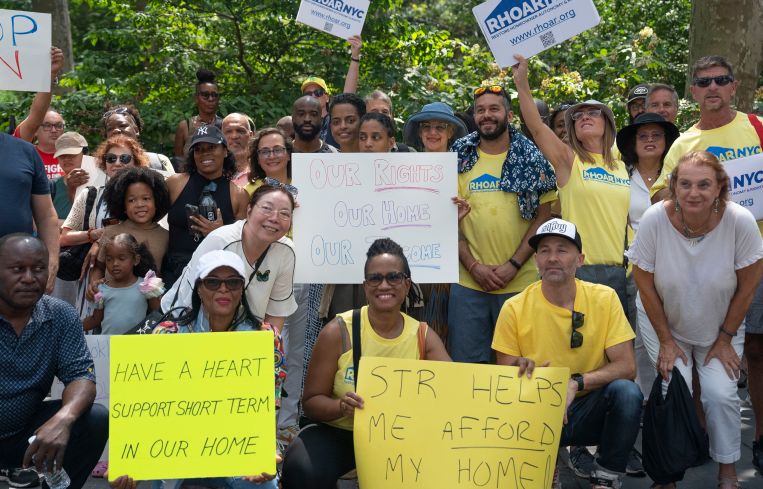State Court Dismisses Airbnb Registration Lawsuit Against NYC
By Rebecca Baird-Remba August 8, 2023 5:59 pm
reprints
A New York Supreme Court judge has dismissed a pair of lawsuits brought by Airbnb and a group of the platform’s hosts against New York City over a new registration law for short-term rentals.
A judge argued that Airbnb had plenty of time to gear up for the policy, known as Local Law 18, and the city is within its right to require registration of short-term rentals. Airbnb hasn’t yet decided whether it will appeal the judge’s ruling.
“The court recognizes that Airbnb insists it will have to take down many of its listings,” Manhattan Supreme Court Judge Arlene Bluth wrote in her ruling. “Of course, Airbnb has known about these rules for many months and has had ample opportunity to tell its hosts about these new rules and tell them to apply for a registration number.”
Local Law 18 requires hosts in apartment buildings to register their units with the city and affirm that their units comply with all of the city’s housing and building codes. The law also enables landlords to put their buildings on a “Prohibited Buildings List,” affirming that they have explicitly forbidden short-term rentals in their rental leases. The Mayor’s Office of Special Enforcement, which oversees illegal hotel activity and short-term rentals, handles the registration process and is the target of the lawsuits.
Airbnb and a small group of hosts sued the city over the legislation in June, arguing that it would effectively ban vacation rentals in the city by making it too burdensome for hosts to operate. The city, in turn, delayed enforcement of the law from June to early September so that the courts could sort out whether Airbnb and the hosts had a legitimate claim. At this point, Airbnb hasn’t yet decided whether it will appeal the judge’s ruling.
Bluth wrote that while the rules may be burdensome for Airbnb, the company has had plenty of time to comply with the law and notify its hosts about the changes.
“[Airbnb] made no assertions in these papers that it has stopped or modified bookings for stays after the effective date of these rules,” Bluth wrote. “In other words, Airbnb cannot make little or no effort to tell its hosts to register, and then complain that it might have to take down hundreds or thousands of listings because they are not registered.”
Theo Yedinsky, Airbnb’s global policy director, said in a statement that “the city is sending a clear message to millions of potential visitors who will now have fewer accommodation options when they visit New York City: you are not welcome.”
Rebecca Baird-Remba can be reached at rbairdremba@commercialobserver.com.



